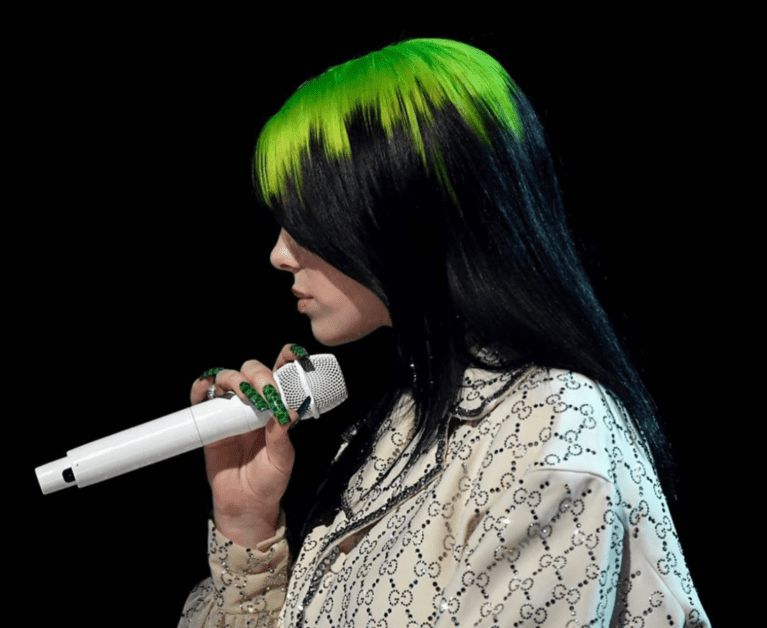Don’t Upset the Rhythm! – An Interview with The Noisettes
PUBLISHED June 20th, 2013 08:55 pm | UPDATED March 27th, 2016 03:07 pm
You may have heard that The Noisettes recently came to town. An English indie rock band from London composed of singer and bassist Shingai Shoniwa and guitarist Dan Smith, they first achieved commercial success and international recognition with the second single of their second album, “Don’t Upset the Rhythm (Go Baby Go)” which is one of those irrepressible tunes that gets into your head and dances around on your memory brain cells…
We got a chance to sit down with them for a chat about fashion, inspiration and their new album, Contact.
In the spirit of Gnossem’s event, let’s talk about fashion. When I watch your shows on Youtube, I get this larger-than-life vibe from the Noisettes. Fashion seems to be an important part of your show.
Shingai : I think it just comes naturally. There’s something really inspiring when you are performing and are being surrounded by colours and shapes…I don’t think I have done a gig in a pair of jeans, because I don’t own a pair of jeans. My eyes are attracted to weird and wonderful things and colours and shapes. Where I grew up in South London and in Africa when I was a child, it’s normal for people to be flamboyant and express themselves: to laugh loud, to eat well, drink well, dance a lot, family gatherings, music…I guess I don’t know any other way.
Ever since I’ve known Dan, he’s never dressed like the guy next door. He’s always been original, and a really interesting guy to hang out with, genuinely interested in art and music and fashion. There aren’t many boundaries with us. I think the great thing about what we do is that we seem to connect the arts on our journeys wherever we go: theatre, being inspired by film, music, soundtracks, story-telling…
Now that you mention it, when I read your lyrics, I sense that the lyricist behind them is someone who is very well-read, in terms of influences and phraseology. Is it a co-writing process, or is it just one of you who writes the song?
Shingai : It depends. I’m inspired by most of the ideas that Dan comes up with, and it’s similar for Dan as well.
Dan : Same here.
Shingai: We both love books; and we like art; and we just seem to create themes. We’ve always managed to have good diet on a broad variety of stuff. I remember going to Dan’s house; in the holidays I would go around for dinner, and have an amazing chat with his dad or his mom, asking them about what it was like as an artist in the 60s. Dan’s dad would chat about stuff from Harry Potter to Pablo Picasso’s cubist African inspired time. Then Aunty Rachel (Dan’s mother) might start talking about her latest poems… and then you also have that nice contrast being from a place in London that is very vibrant in its community, with a lot of Africans, Asians, Carribeans, Cockneys, Irish people…you know, it’s just a fun place, and for that not to go into your work would be very difficult. But books are also definitely very inspiring for lyrics. I think language is there to be played with. We’ve definitely been very audacious about the way we play with language in our lyrics, because, you know, it sets people free. Language should not be limiting … I just love playing with words and I guess that comes through in our songs.
When I hear your music, I like the soulful vibe that I pick up from it, in songs like Atticus and Travelling Light. But I also like that there’s this whole raucous side to the Noisettes, in songs like Winner or in your cover of Children of the Revolution. How are you able to balance these two sides?
Shingai: I think once you have a really good relationship with the people that you make music with, it’s easier to be as dynamic as to bring a moment down till you can hear a pin drop, or as loud as it needs to express that vibe. Listening to music like jazz music, African music, folk music, or rock and roll; it gives you tools, the power to imagine so much more out of where you can go with music. I think music is a bit like a diet: if you only eat one food then you can only cook one dish; you would only get fans who like one type of food. Having that broad interest is quite important for an artist because it shows more commitment in being interested in what anyone has got to say apart from yourself, so maybe that helps the dynamics.
Also, that relationship thing, listening to each other… having done lots of gigs in a variety of different places really helps. If you can play on a boat that is rocking really hard on the Thames, full of politicians with falling rain outside…if you can play on a beach festival with ten foot waves outside of Lisboa, or on a rooftop somewhere, with a roasting barbequing pit…
Dan: that was one of our first gigs!
Shingai: …Just having that open heart and open spirit helps me learn more about music. Especially with pop music, sometimes it has its maverick periods where you get characters like Tina Turner, David Bowie, Nina Simone or Kate Bush, people who can use their craft and character to express something more than the status quo. What I mean is, I think the whole point about pop music is that it is supposed to appeal to a broad section of people. So once you just try to appeal to people who are blonde like Britney Spears, or people who cut their hair in a certain way, I don’t think that’s pop music anymore. Look at Michael Jackson, at the height of pop music – it just shows you how the priority was about characters who were original, who could unite a lot people through their craft. Pop is not just about the music, it’s about the soul. It shouldn’t be a division of this crew or that crew, or not being allowed at a gig because you don’t wear a leather jacket with studs on it.
Michael Jackson definitely transcended the genres.
Shingai: You can transcend any genre. I mean, music is supposed to bring down barriers, not put them up. That’s our job isn’t it: to help attain a wider and common understanding of each other.
The one thing I notice about your new album, Contact, is that there is different music direction to it, although the vibe and dynamics we previously talked about are still there. It sounds more electronic?
Dan: I think that’s the excitement of getting involved with synthesisers. We had this awakening to Moogs when we got our hands on a mini-Moog in a studio in Belgium. These modern synth presets are alright, but there’s something less fun about them. With a Moog, one person plays the part; the other person has to manipulate the sound, so we got into that quite a lot. So we used the Mini Moog quite a lot as well as a Yamaha CS-80.
Was it a conscious decision to experiment with them?
Shingai: I think each album is reflective of where you make it.
Dan: And when you make it!
Shingai: Like for our first album, when we had no money, we did our final sessions for it at a proper studio in Croydon. It was a hundred pounds a day, and we had two amps and a drum kit. Dan probably had five pedals back then. I had one pedal that was breaking, and the batteries were always frying. But we still managed to make memorable songs and still get dynamics.
On Wild Young Hearts, we had access to a really lovely studio – well, for the first two weeks anyway – called Mayfair, which had quite a lot of amazing synths and old instruments and things like kettle drums and timpani, things we hadn’t really had access to. So it’s silly not to have fun and not to employ what’s around you. Then, two or three weeks later, we had to get out because the studio had gone bankrupt – so we went from there, which was very very tech-y and very lovely, to a place called Olympic where we just had to bring all of our own stuff. But then they had a grand piano, so then tracks like Cheap Kicks came out there. Then for our third time round, with Contact, we did some amazing sessions with people like Ne-Yo in LA, who has four bodyguards and people coming in and out with champagne and little poodles and that kind of thing, and of course you’re going to react to that and write a song called You’re My Star.
So it’s not like, oh we’re not going to make an electronic album or this and that. We’re going to endeavor to make the most beautiful collection of songs and moments by using what we’ve got around us and not get caught up too much with preconceived ideas.
For more information about The Noisettes and to check out their new album, click here
With big thanks to The Noisettes.


